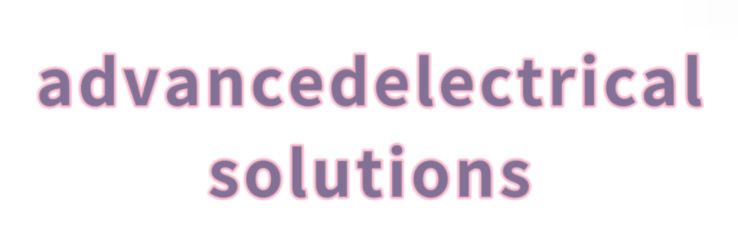The Advantages of Implementing Ceramic Capacitor Efficiency
In the world of electronics, efficiency is a cornerstone of design, performance, and sustainability. One component that has increasingly become synonymous with efficiency is the ceramic capacitor. In this blog, we’ll delve into the advantages of implementing ceramic capacitors, highlighting their efficiency in various applications while offering insights into why they are preferred by engineers and designers globally.
1. High Capacitance Density
Ceramic capacitors exhibit remarkable capacitance density, meaning they can offer substantial capacitance in a relatively small physical size. This compactness is crucial, especially in modern electronics where space can be a constraint. Imagine a smartphone packed with features; the saving in space allows room for other critical components without compromising performance. Additionally, the smaller size leads to lighter devices, which is an essential factor in portable electronics.
2. Excellent Frequency Response
Ceramic capacitors are especially known for their outstanding frequency response characteristics. This makes them ideal for high-frequency applications, such as RF (radio frequency) circuits and high-speed digital circuits. Unlike their electrolytic counterparts, ceramic capacitors can maintain their capacitance at higher frequencies, reducing the risk of signal degradation that can occur with frequency changes. This consistency ensures better performance in applications ranging from communication devices to advanced computing systems.
3. Low Equivalent Series Resistance (ESR)
One of the standout features of ceramic capacitors is their low Equivalent Series Resistance (ESR). A low ESR means that less energy is lost as heat while the capacitor operates, ensuring that more energy is retained for the circuit’s effective functioning. In power electronics, for example, a low ESR translates to improved efficiency and fewer thermal effects, leading to longer device lifespans. This is particularly beneficial in applications such as power supply circuits, audio devices, and signal processing systems.
4. Temperature Stability
Ceramic capacitors come in various classes, with Class 1 ceramics being particularly stable across wide temperature ranges. This temperature stability is vital in applications where components are subjected to extreme heat or cold. The capacitor will maintain its performance parameters, ensuring reliable operation. This attribute is especially important in automotive electronics, aerospace, and industrial settings where fluctuations in temperature can occur.
5. High Voltage Ratings
When designing circuits, voltage ratings are a paramount consideration. Ceramic capacitors can support high voltage ratings, making them suitable for a wide array of applications, including power converters and high-voltage power supply systems. Unlike other capacitor types, ceramic capacitors can offer high breakdown voltages while remaining compact, allowing designers the freedom to integrate reliable components without adding bulk or complexity.
Additional reading:10 Facts You Need to Understand about Glass Glaze Resistor Performance
Electronic Components & Supplies
6. Low Self-Heating
In high-power applications, overheating can be a significant concern. Ceramic capacitors, thanks to their low ESR, exhibit minimal self-heating under load. This characteristic not only enhances reliability but also contributes to overall system efficiency. When components are subjected to lower temperatures, they typically have longer operational lifespans, a vital consideration for any electronic device, be it a consumer gadget or an industrial machine.
7. Environmental Resilience
As the world increasingly veers towards sustainable practices, the resilience of a component in various environmental conditions becomes paramount. Ceramic capacitors are not just efficient; they are also robust against moisture, humidity, and mechanical stress. This durability means fewer failures and lower maintenance costs over time. Industries focused on sustainability can greatly benefit from their reliability as it aligns with green practices aimed at reducing waste and enhancing overall operational longevity.
8. Cost-Effectiveness
While the initial cost of ceramic capacitors may seem higher than some alternatives, their long-term benefits often outweigh the upfront expense. The longevity, low failure rates, and high efficiency contribute to reduced costs over time. Engineers can allocate budget resources more effectively when they know a capacitor will perform reliably for an extended period without needing frequent replacements.
9. Versatility Across Applications
The versatility of ceramic capacitors is another significant advantage. Whether you're designing audio equipment, power converters, RF systems, or consumer electronics, ceramic capacitors offer a solution that can meet varying requirements without extensive modifications. This ability to adapt to a wide range of applications makes them an invaluable component in the toolkit of electronic designers.
In conclusion, the implementation of ceramic capacitors contributes substantially to electronic efficiency by maximizing space, enhancing performance across frequencies, ensuring stability under various conditions, and ultimately driving down operational costs through reliability. As technology continues to evolve, embracing the multifaceted advantages of ceramic capacitors will be essential for anyone looking to create efficient, robust, and cost-effective electronic solutions. Whether you're a seasoned engineer or a design novice, understanding the benefits of these small, yet mighty components will empower you to innovate in your projects like never before.
For more information, please visit Glass Glaze Resistor Performance, glass glaze resistor, Industrial Resistor Production.

Comments